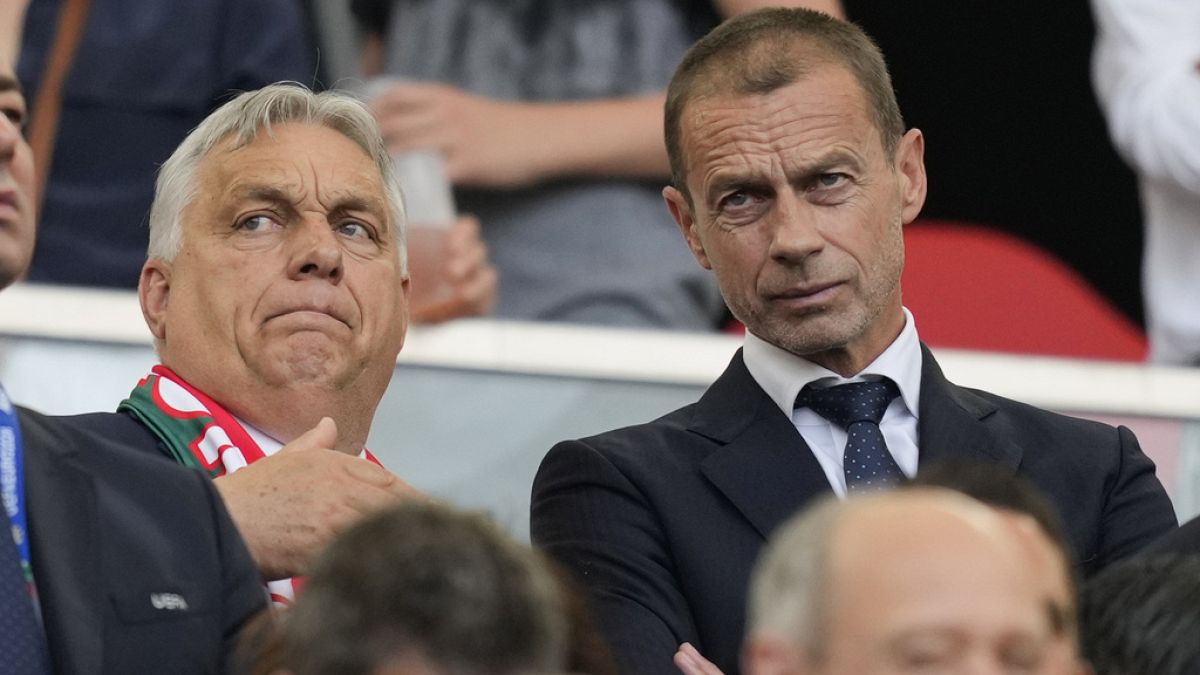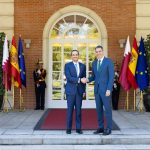Hungarian Prime Minister Viktor Orban recently visited Berlin, where he was greeted by German Chancellor Olaf Scholz in a low-key manner. The relationship between the two countries appears strained, as this is the second time Orban has visited without fanfare. The purpose of Orban’s visit was to discuss Hungary’s upcoming presidency of the EU Council and various key topics that will be on the agenda.
During his visit, Orban sat next to Scholz at a football match, but politics were not discussed. The EU Council presidency may not hold much power, but it does determine which topics are prioritized in Brussels. Orban’s government is likely to focus on issues such as other member states’ accession into the EU, including Serbia, Moldova, and Ukraine. Orban also has an interest in integrating the Western Balkan states, in part due to his friendship with Serbian leader Aleksandar Vucic, who is allied with Russian President Vladimir Putin.
Despite tensions over Hungary’s migration policies and anti-Ukraine stance, Scholz made time to meet with Orban during a busy day of meetings and events. Orban will also be visiting Italy to meet with leader Giorgia Meloni as decisions on the top EU jobs are made. At least 15 of the 27 EU leaders must back candidates for the next five years. Orban’s visit comes at a crucial time as EU leaders prepare to make important decisions for the future of the European Union.
Orban’s visit to Berlin and upcoming meetings in Italy highlight the political tensions within the EU and the complex relationships between member states. The Hungarian Prime Minister’s focus on issues such as EU enlargement, integration of Western Balkan states, and alliances with leaders like Vucic and Putin demonstrate his strategic approach to foreign policy. As discussions on the top EU jobs continue, Orban’s interactions with other European leaders will play a crucial role in shaping the future direction of the European Union.
The frosty reception of Orban in Berlin reflects the ongoing challenges facing the EU, particularly regarding migration policies and relations with neighboring countries. Despite differences with Germany and other EU partners, Orban’s visit signals Hungary’s commitment to playing a key role in shaping EU policies during its upcoming presidency. As EU leaders work to reach consensus on important issues, including candidate appointments and policy priorities, Orban’s diplomatic efforts will be closely watched by political observers across Europe.
In conclusion, Hungarian Prime Minister Viktor Orban’s recent visit to Berlin and upcoming meetings in Italy underscore the complex dynamics at play within the European Union. As Hungary prepares to take on the EU Council presidency, Orban’s interactions with key European leaders will be critical in shaping the future direction of the EU. The challenges and tensions facing the EU, including migration policies and relations with neighboring countries, highlight the importance of diplomatic engagements and strategic alliances in navigating the complex landscape of European politics. Orban’s visit comes at a crucial juncture as EU leaders make decisions on top positions and policy priorities, setting the stage for the next phase of European integration and cooperation.





















